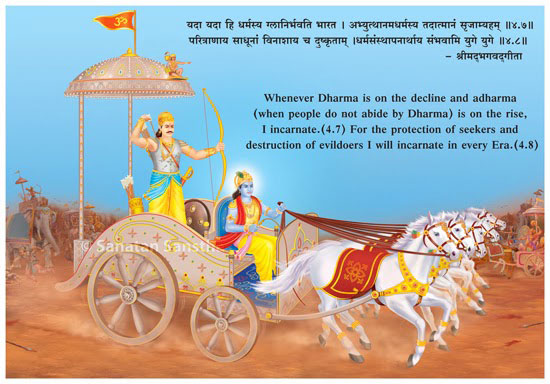Justice Indu Malhotra : A Loyal Figure in the judiciary !

Supreme Court Justice Indu Malhotra retired on 12th March. She is the second woman to be recognised by the Supreme Court as a Senior Advocate. She is one of the few advocates to be selected directly from the bar to the Supreme Court. Such a fortune is not bestowed on any individual unless he/she possesses merits.
Indu Malhotra is the same Justice who gave her opinion based on Dharma while hearing the then ongoing petition for women’s entrance to Shri Ayyappa Swami Temple at Sabarimala in Kerala. At that time, four Justices on the Bench had ruled in favour of giving entrance to women (which was contrary to religious traditions); while Justice Indu Malhotra had strongly argued that ‘judicial interference in ancient religious traditions is not appropriate’. She had said, “The right to equality cannot go beyond religious freedom. The Court should not interfere in religious traditions because it will have far-reaching effects on other religious places as well. Religious practices are protected by the Constitution. It is not the job of the Court to repeal the traditions. The Supreme Court’s handling of such petitions is tantamount to endangering the secular fabric of the country, as well as undermining the established faith”.
As a result of these observations of Justice Indu Malhotra, a review petition has been filed. This is a kind of success of the ideas put forth by Justice Indu Malhotra. This example shows that even in a patriarchal environment if one walks resolutely according to one’s own judgement, something can be definitely achieved.
Justice Indu Malhotra was in the Supreme Court of the country. In a sense, she was working shoulder to shoulder with men. Despite this, she did not fall prey to crony-reformism and the hypocritical concepts of gender equality.
On the other hand, Trupti Desai and like-minded women, who have half-baked knowledge on such subjects, try to be in the limelight through agitations to gain access to temples by manipulating the Constitution.
Frank expression of thoughts in the public interest
Although Justice Malhotra respected religious traditions on priority in the Sabarimala case, she gave a very sensitive verdict on women while disposing off the petition regarding dowry. ‘In cases like dowry, the victim’s parents are natural witnesses because one’s parents and family members are the first to come to know about such problems’, she said. The common man decides not to approach the Court, no matter how difficult the problem may be. This verdict of Justice Malhotra, which is a relief to the parents of such victims, shows her sensitivity to the plight of the common man.
Her remarks in ruling on another petition are aimed at curbing the ways in which investigative mechanisms are currently being used for political or personal purposes. Many times raids are conducted by investigating agencies during which 1-2 people are arrested and the case against them is stalled for years together under some pretext or the other. Many citizens have fallen victim to such tactics. Justice Malhotra has lashed out at such investigative agencies. ‘The failure of the investigating agencies to complete probes in a timely manner proves their prejudice against the accused’, Justice Malhotra had said. In another case, she said, “The Court should explain why a person was granted bail”. Thus, the different thoughts expressed by her in various cases were unique features of her frankness.
Satisfaction in fulfilling duties
While bidding farewell to the Apex Court, Justice Malhotra said, “I am bidding farewell to this Court with the satisfaction of fulfilling my duty / promise”. Nowadays, a new practice has come up. Remaining in a postion of power for many years, enjoying its facilities and trying to gain sympathy by pointing out the flaws in the system after retirement – these are the perverted methods of so-called social work.
Earlier, a retired Chief Justice had said, ‘I was not allowed to work in the Supreme Court by a group of people’, while another judge had said after his retirement that the Supreme Court system worked only for the rich. By making such statements, attempts are made to show that ‘I am not the part of this system’. Moreover, since the concerned individual has already retired, he does not have to make any attempts to improve it. Making such statements, however, begets a lot of publicity. No one in India asks the judges, “What did you do when you were in a position to ?” The difference between the weakness expressed by 2 male judges and the satisfaction of performance expressed by a female judge is clearly noticeable. The sense of satisfaction expressed by Justice Malhotra, who worked in the Supreme Court with restraint and with a clear conscience, underscores her unique career.
We have a lot more work to do to eliminate the flaws in the judiciary; however, it will not be achieved just by expressing verbal concern. Everyone should work with honesty and justly, only then will the process of change gather momentum.